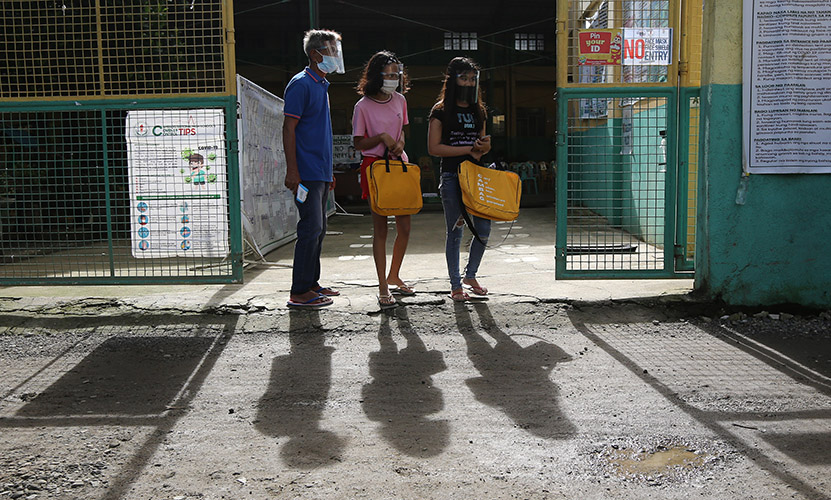While the dry runs on limited face-to-face classes in low-risk areas would have addressed some challenges that hound distance learning, Senator Win Gatchalian said that the government’s rescinding of its green light is a precautionary measure against a new strain of COVID-19 that is now spreading across the world.

The Chairman of the Senate Committee on Basic Education, Arts and Culture warned, however, that the country should brace itself for the aggravation of the current learning crisis and a likely spike of learners with poor performance. To mitigate the looming learning losses and make up for lost time on face-to-face instruction, Gatchalian said the government should exhaust all resources and implement measures to help learners catch up.
In rolling out remedial programs, Gatchalian said there is a need to assess learning gaps, especially among vulnerable students. This would help in the correct targeting of learners for remedial programs.
Under the 2021 national budget, P16,615,694,000 was allocated for ‘flexible learning options’ under the programmed appropriations of the Department of Education (DepEd). An additional P6-billion was allocated for flexible learning options under unprogrammed appropriations.
The senator said that the absence of face-to-face classes entails the continuous use of alternative modalities for learning delivery such as self-learning modules, radio- and television-based lessons to support teachers and learners amid the distance learning setup.
Gatchalian also cited the role of the Alternative Learning System (ALS), especially in reaching out to an estimated 2.3 million K to 12 learners who were not able to enroll because of the COVID-19 pandemic. A special provision in the 2021 national budget allocates an amount of at least P559 million for the program.
“Dahil wala na muna tayong face-to-face classes ngayong Enero, nangangamba akong baka lalong umurong ang kaalaman ng ating mga kabataan. Mas malaki ang magiging problema natin. Kaya dapat sa 2021, ibuhos natin ang budget at lahat ng resources para masiguro na hindi umurong ang kaalaman ng ating mga estudyante,” said Gatchalian.
The lawmaker reiterated that before the pandemic hit the country, the international assessments 2018 Programme for International Student Assessment (PISA), the Southeast Asia Primary Learning Metrics (SEA-PLM) 2019, and the Trends in International Mathematics and Science Study (TIMSS) 2019 consistently showed that the country’s K to 12 learners are failing to master basic competencies and lagging behind their peers across the world.
As part of long-term recovery efforts, Gatchalian emphasized the need for reforms in teacher education and training to improve learner outcomes. Senate Bill No. 1887 or the Teacher Education Council Act, which Gatchalian filed, seeks to improve the coordination between DepEd, the Commission on Higher Education (CHED), and the Professional Regulation Commission (PRC) to improve teacher education and training in the country.


